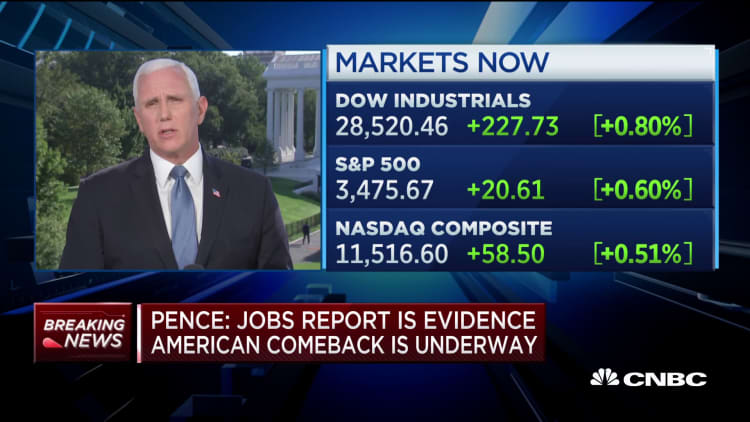With Labor Day weekend approaching, top U.S. health officials are pleading with the American public to maintain public safety precautions, such as mask-wearing and social distancing. The U.S. is headed into the fall with a troubling level of spread if the country can't bring the daily numbers down through September, White House coronavirus advisor Dr. Anthony Fauci warned earlier this week.
Here are some of the day's important headlines:
- Trump's vaccine chief says unlikely one is ready by November
- Forecaster predicts over 410,000 U.S. deaths by Jan. 1
- Pence says aid talks continue in 'good faith' after deal to avoid shutdown
- New York reports four weeks of infection rate below 1%
- Russia's early vaccine trials show no serious side effects: Lancet Journal
The following data was compiled by Johns Hopkins University:
- Global cases: More than 26.3 million
- Global deaths: At least 869,300
- U.S. cases: More than 6.15 million
- U.S. deaths: At least 186,800



